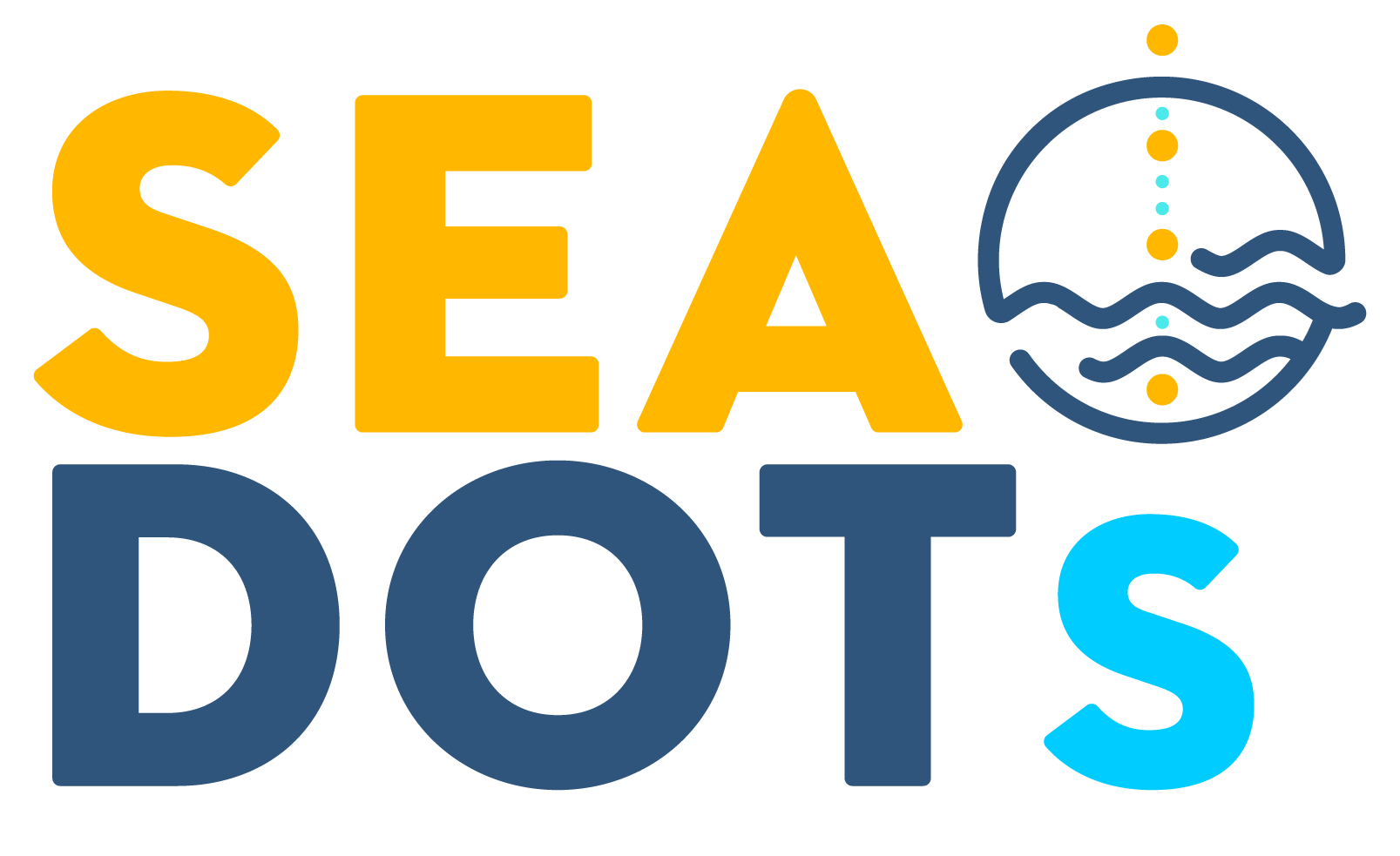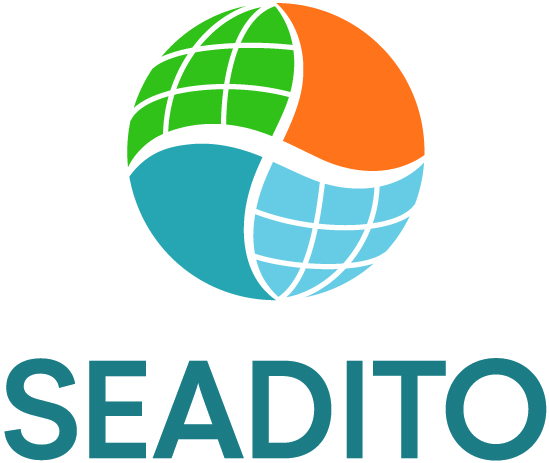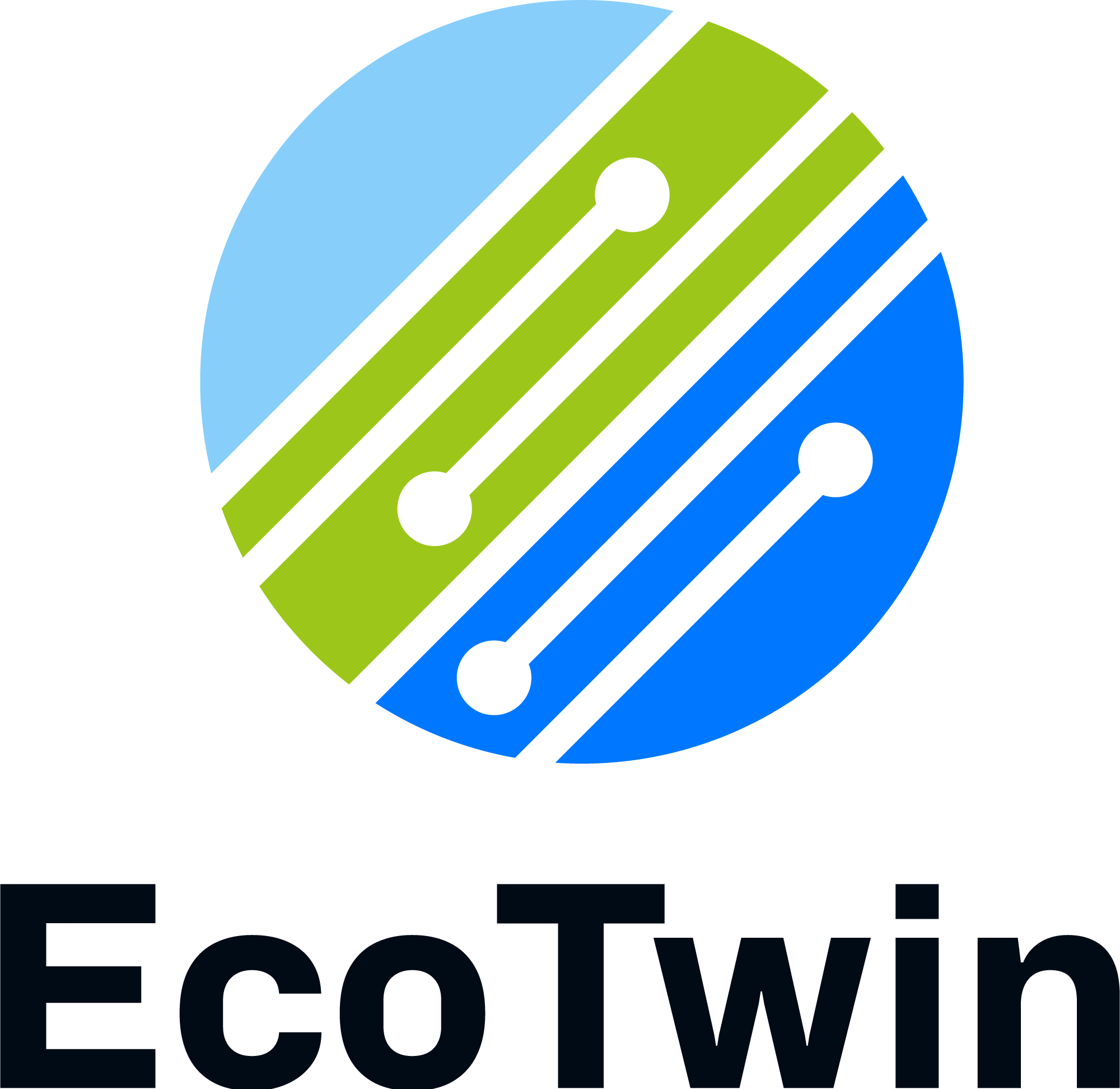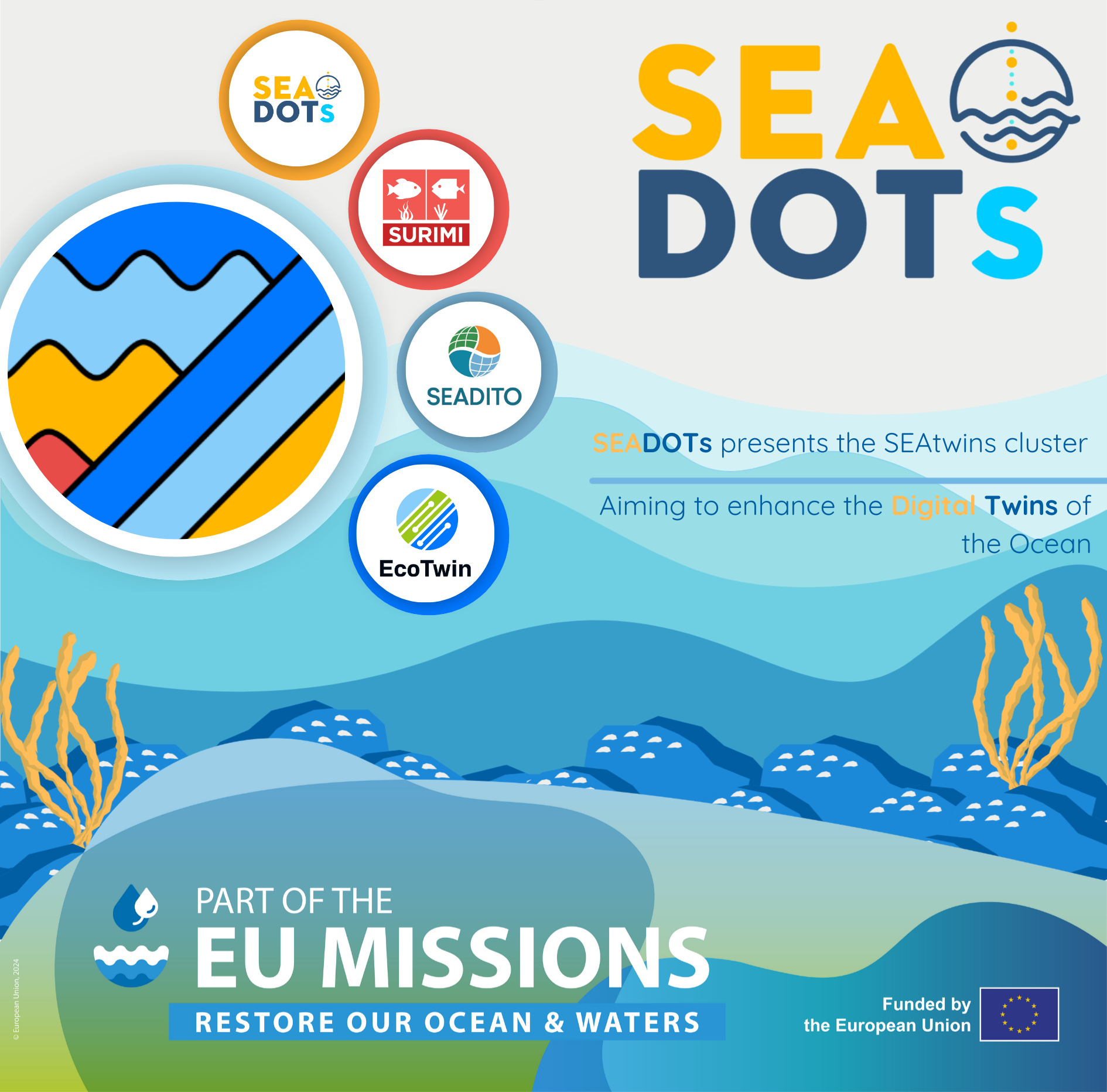
SEAtwins fosters innovative integration of socio-ecological models into the European DTO framework, enabling advanced scenario analysis, decision support, and ecosystem-based management. The project brings together novel methodologies, tools, and standards ensuring data interoperability, FAIR principles compliance, and participatory co-design. With case studies across European seas, SEAtwins aims at empowering policymakers, researchers, and further stakeholders to advance sustainable ocean management, enhancing societal and ecologic well-being in line with the UN Ocean Decade goals.

SEADOTs
SEADOTs aims to strengthen the European Digital Twin Ocean (EU DTO) by developing and integrating next-generation socio-ecological models that enable more inclusive, informed, and adaptive decision-making in marine governance. The project brings together cutting-edge ecological modelling, socio-economic data, and behavioural insights to deliver robust, interoperable decision-support tools grounded in the FAIR data principles.
Focusing on three demonstration sites—the Norwegian North Sea, Southern North Sea, and the Baltic Sea—SEADOTs co-designs, tests, and validates digital solutions in real-world contexts, working closely with end-users including policymakers, marine managers, and local stakeholders. These demonstrators serve as testbeds for the development of integrated workflows and spatially explicit models that reflect the complex interactions between human activities and marine ecosystems.
A central outcome of the project is the SEADOTs Explorer platform, an interactive interface that brings together visual social-ecological models and a scenario-based policy toolkit (WIST), offering a tangible means to explore management options and their trade-offs. This platform is complemented by learning materials targeting early-career researchers, decision-makers, and the general public, enhancing digital ocean literacy and long-term usability.
SEADOTs places strong emphasis on co-creation and transdisciplinarity, engaging actors from across the marine science-policy-society spectrum to identify user needs, co-develop indicators, and evaluate model outputs. By enabling the integration of quantitative and qualitative data—including cultural and behavioural dimensions—SEADOTs contributes to the creation of holistic, scalable digital twins aligned with the EU’s Mission “Restore our Ocean and Waters.”

SEADITO
The EU Mission “Restore our Ocean and Waters” (Mission Ocean) aims to protect and restore the health of our oceans and waters by 2030. This mission involves research, innovation, citizen engagement, and blue investments.
The European Digital Twin Ocean (EU DTO) supports Mission Ocean and the European Commission’s key initiative, Destination Earth (DestinE), aiming at creating an accurate digital model of the Earth on a global scale in order to monitor, simulate, and predict interactions between natural phenomena and human activities.
SEADITO, addressing the Horizon Europe call HORIZON-MISS-2023-OCEAN-01-8, focuses on developing analytical methods and tools for the EU DTO. It integrates social-ecological models to establish a comprehensive decision support platform.
SEADITO is going to update and integrate these models for improved Ecosystem-based Management. Case studies in the Baltic Sea, North Sea, Mediterranean, and a Pan-European study will provide the context for multi-actor processes. Components and services are going to be co-designed and tested in targeted user communities.
The results include interoperable, spatially explicit, and DTO-compliant social-ecological decision-support components based on FAIR principles. Additionally, scalable and multi-level social-ecological models, quantitative and qualitative indicators, and workflows are integrated. Testing occurs through the SEADITO Explorer, an interactive spatial platform with visual demonstrators and a Scenario Toolkit (WIST). Learning materials target young researchers, decision-makers, and the public.

EcoTwin
The EcoTwin project aims to enhance the European Digital Twin Ocean (EDITO) and local Digital Twins of Ocean (DTOs) by integrating socio-ecological (SE) models, making ocean data and knowledge more accessible for a broad audience, including citizens, entrepreneurs, scientists, and policymakers.
By developing innovative SE models and analysis tools, EcoTwin seeks to improve decision-making and scenario analysis related to ocean health and coastal management.
The project focuses on four key coastal regions: the Southern North Sea, Celtic Sea, Thracian Sea, and Waterford Estuary. These areas will serve as case studies to test and refine the models, supporting the EU’s initiatives to protect marine environments and promote sustainable development. EcoTwin addresses current challenges in combining social and ecological data, which are often difficult to integrate due to their differing natures. The project uses graph theory to link these data types, creating comprehensive models that capture the complexity of socio-ecological systems.
EcoTwin will develop four classes of SE models: quantitative and qualitative causal models, network models with participatory feedback, and generative AI models. These models will use data from various sources, including Copernicus, EMODnet, and EUROSTAT, and will involve collaboration with the European Open Science Cloud to ensure best practices in data management. The goal is to create interoperable, reliable, and sustainable models.
The project also emphasizes stakeholder involvement, co-designing tools and processes for effective engagement and policy scenario assessment. This ensures that the models are practical and relevant for decision-makers. Additionally, EcoTwin will develop AI tools tailored to marine ecosystems, enhancing the accessibility of ocean data and enabling more efficient decision-making.

SURIMI
SURIMI supports the development of the European Digital Twin Ocean (DTO) by integrating socio-ecological models that help assess the ecological, social, and economic impacts of fisheries management decisions. The project delivers open-source, user-friendly tools that enable stakeholders to run “what-if” scenarios and explore sustainable solutions for marine ecosystems.
SURIMI is developing a modular toolbox of nine models, including established systems like Ecopath with Ecosim (EwE), POSEIDON, and CMSY++, along with a new system dynamics model and a management strategy evaluation (MSE) model. These tools are designed to be interoperable with the DTO and support evidence-based decision-making.
Advanced features like AI and natural language processing (NLP) help translate complex outputs into clear summaries, while a visual dashboard allows users to define scenarios and explore outcomes, even without technical expertise.
SURIMI places strong emphasis on co-design with end users, including fisheries managers, policymakers, and NGOs. A dedicated Stakeholder Forum and regular workshops ensure the tools reflect real-world needs, promote transparency, and build trust in digital decision support systems.
By combining ecological and socio-economic modelling with intuitive interfaces, SURIMI makes marine data more accessible and actionable. The project builds on existing data infrastructures like ICES, EMODnet, and Copernicus, and contributes to wider EU efforts to support the Common Fisheries Policy and the Mission Ocean objectives.
Get involved with the co-creation of SURIMI tools





